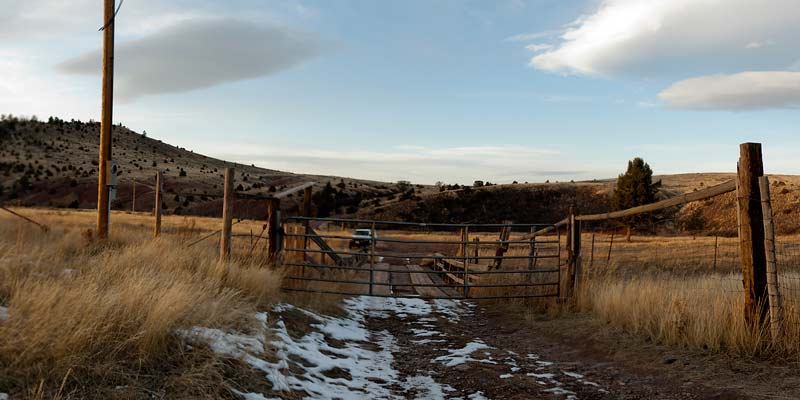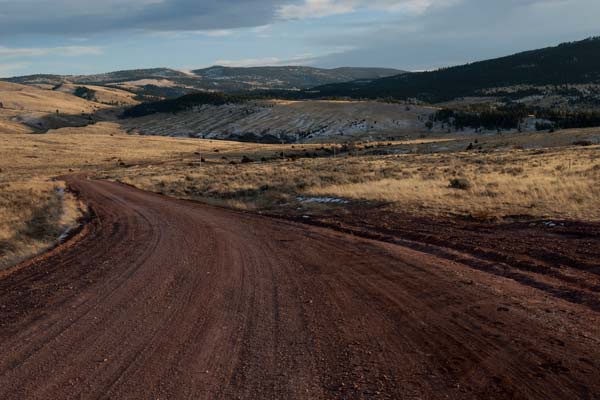Sixteen
Sixteen emerged as a homestead community and later a stop on the railroad. In 1895 the Montana Railroad built a line from Lombard east toward the Castle Mountains where silver and lead ore was discovered. Railroad President Richard Harlow pushed his line, "the Jawbone," toward Ringling through Sixteen Mile Canyon. Populated by a few homesteads, the area railroad section became a base for workers. Nestled in the hill near Sixteen Mile Creek only a few miles from famous Sixteen Mile Canyon, the town became Sixteen. In 1908 the Milwaukee Railroad purchased the Jawbone to complete its transcontinental line.
In 2000, Sixteen had a handful of part-time residents and only two year-round residents, Bill McDonald and his mom Helen. Bill was the third generation living there. The town remained on the map. A few years later Bill's mom passed, leaving Bill to tend to Sixteen. Many who knew Bill said he was born 100 years late. He carried a .44-caliber pistol in the back of his pants and bowie knife on his hip. Cowboy poet Lee Zehntner captures McDonald's character in his poem, "Sixteen".
In 2009, the town's population grew to three, when part-time Sixteen residents Michael and Ingrid Eckberg moved there full time. Michael Eckberg had fallen in love with Montana in 1961 when he traveled there on the railroad with his dad, a dining car chef on the Northern Pacific. The railroad history of Sixteen lured Eckberg and his wife during a 1980s family trip. In 1993, they bought a place in Sixteen. Once Eckberg retired, they moved their full time in 2009 – the draw too great.
"If heaven's as good as Sixteen Montana, than I will be very happy," Eckberg joked.
But in 2010, a tragic incident befell the town. Only the town residents know what happened that morning. It left Bill McDonald fatally shot and Michael Eckberg in the hospital with multiple stab wounds. Meagher County Attorney Kimberly Deschene said it was a case of self-defense. No charges were filed.
They were neighbors. They were friends. They were Sixteen. The Eckbergs and McDonalds often shared dinner together. When Bill left he'd always say, "thanks for the groceries."
It's the kind of tragedy played out on stage, but this was real. Now the town's existence lies in the hands of the Eckberg family, the only year-round residents. When asked about the incident Michael Eckberg gazes toward the sky and wonders why did it have to happen? Yet, his love and passion for the town of Sixteen remains strong.




